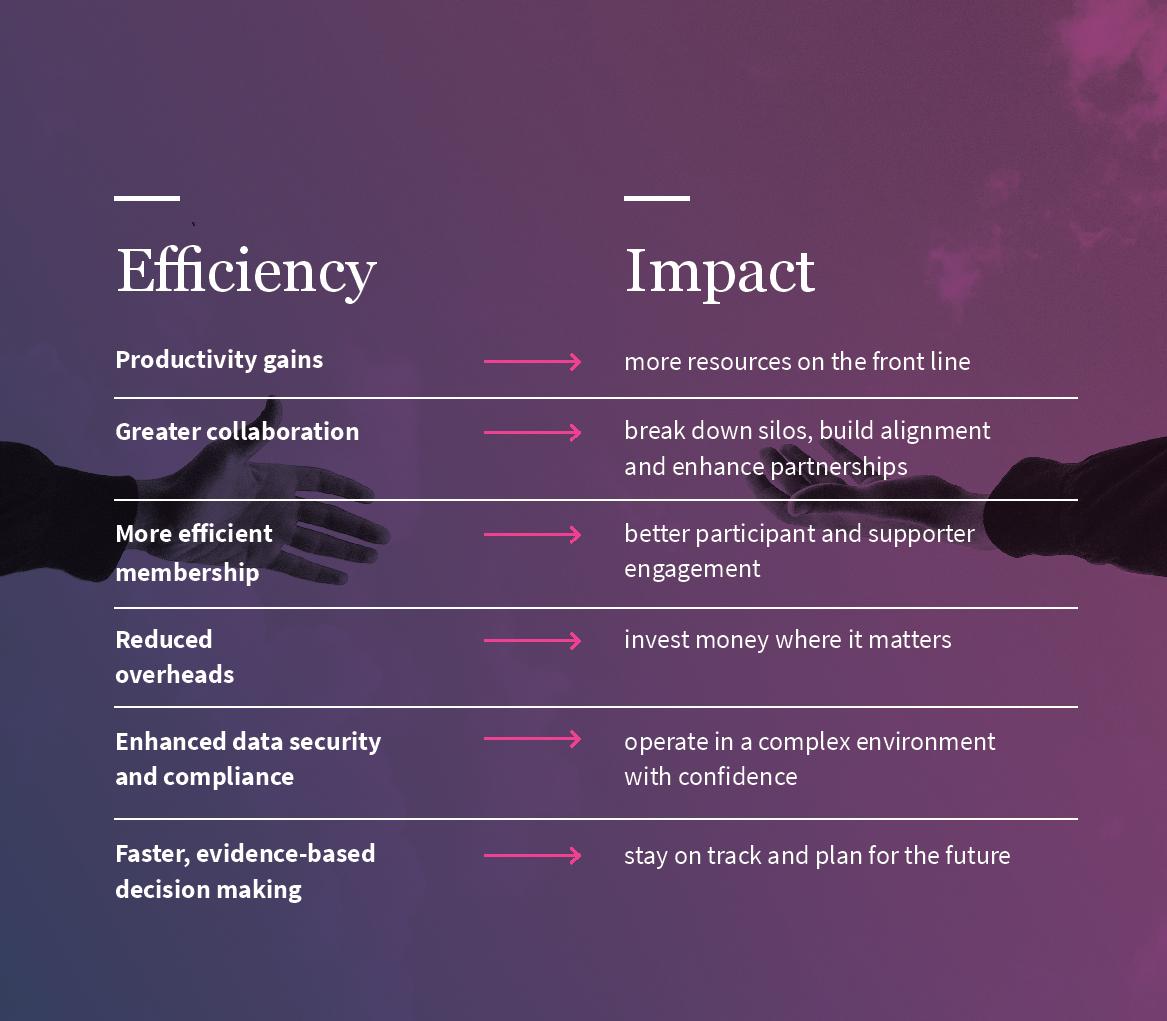Doing more with less; a goal for any business, nirvana for non-profits.
In a sector where every dollar counts, where competition for funding is fierce and where Boards expect lean operation and maximum outcomes, for non-profits efficiency is as much about keeping costs to a minimum as it is about enhancing impact.
But the road to nirvana is not always clear — particularly when trying to balance two seemingly opposed goals. While the journey involves data and technology, it actually begins with moving mindsets.
Many of the NFP leaders I speak with are curious about how they can extract greater value from their data. All are certainly aware of the advantages information and technology can provide. And yet many continue to feel constrained by long-held or limited views on what data can and can’t do for an NFP.
The good news is, when used well, data and technology can provide both the practical and the innovative solutions non-profits seek — and even form an income stream in some cases. And they can, most definitely, reduce costs and drive impact.
Necessary, not discretionary
Invest in growing the organisation. Up-skill your people. Secure long-term financial security. But don’t divert funds away from what you’re there to do – stay true to the mission. This is the balancing act directors of NFPs face, the fine line they must walk.
While most now accept the importance of data privacy and security, for a long time, investing in data has fallen into the discretionary category. A ‘nice to do’.
And with AI and machine learning dominating headlines and an innovation obsession gripping the globe, it’s easy to understand why data-driven initiatives can feel indulgent.
Do we really need machine learning to help us understand our customers and map their journeys with us?
Yet when data is recognised as a critical business asset and technology is used wisely, non-profits can expect to see real improvements.
The keys to success are considering what an organisation already has, exploring efficiencies across people, processes and technology and then redistributing resources to service delivery.
What NFPs stand to gain

Extracting value from the data you hold
Once you see the true value of investing in data and technology, then you can learn about how to leverage it.
Many non-profits are either unaware or unsure of the commercial value of their data. And thanks to high-profile cases like Cambridge Analytica, even exploring the idea can feel uncomfortable.
Selling data can sound transactional, unethical, wrong… perhaps at odds with the fundamental beliefs and principles that NFPs hold. And in some cases, it is.
But it is possible to sell data without breaching privacy legislation or risking losing community trust.
To understand these opportunities, we need to reframe how we think about extracting value from data in NFPs.
Many NFPs hold a wealth of information – social data that can be used to paint a clearer picture of the challenges we face. How can we provide stronger support for people with disability? How can we better prevent the spread of disease? Data can provide answers and these insights can be of immense value to commercial providers in developing products and services for the sector.
In this context, selling data takes on new meaning and serves a genuine purpose.
When it comes to extracting value from data, agreeing on the principles for decision-making constitutes the first and most important step. Here, a data ethics framework is key. This, combined with strong data governance practices and solid privacy and data sharing policies, provides NFPs with the tools they need to make wise and ethical decisions.
NFPs are, by nature, resourceful and creative problem solvers. So why should their thinking around data be any different? And while thinking about data may seem peripheral to making a difference and driving social change, perhaps it’s time this changed.





